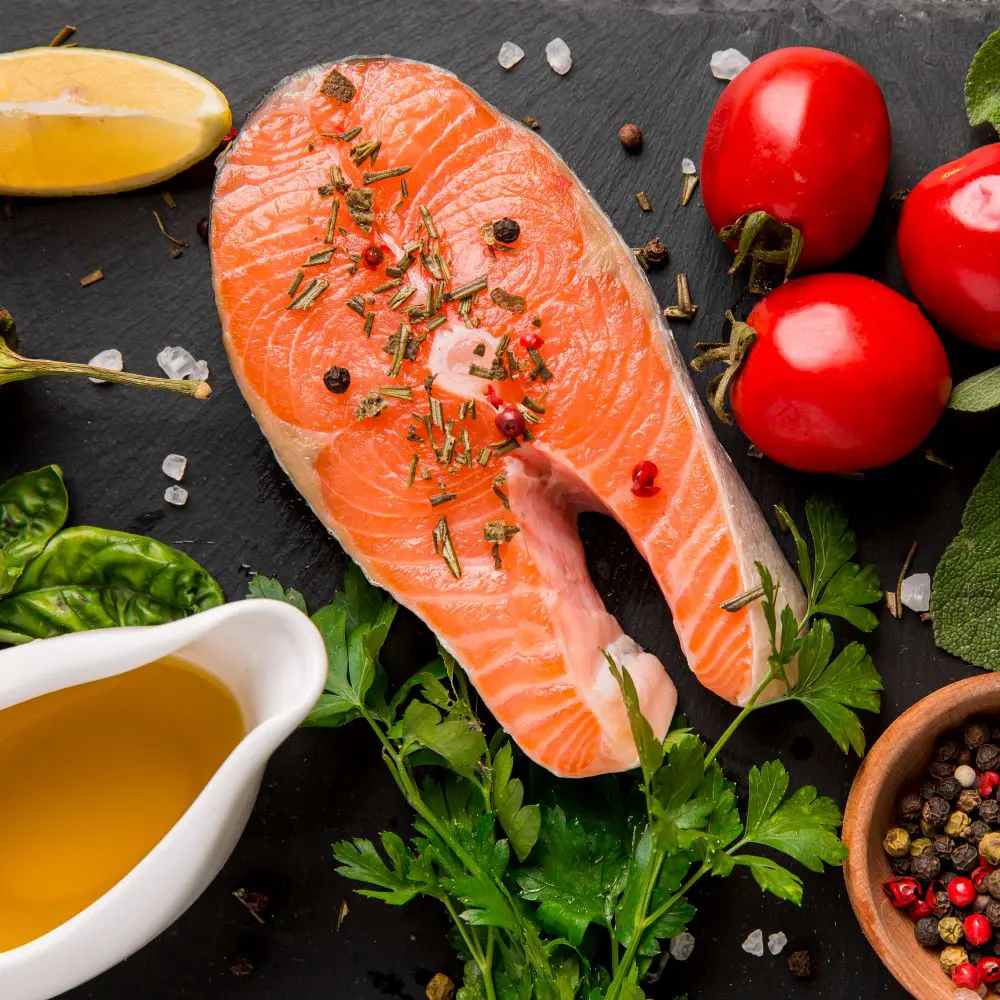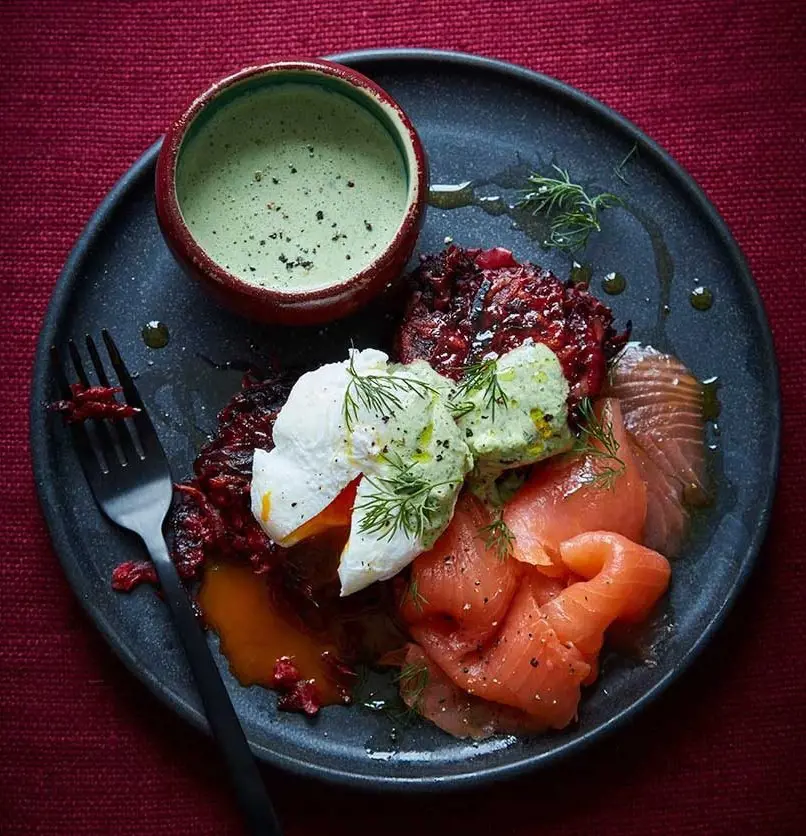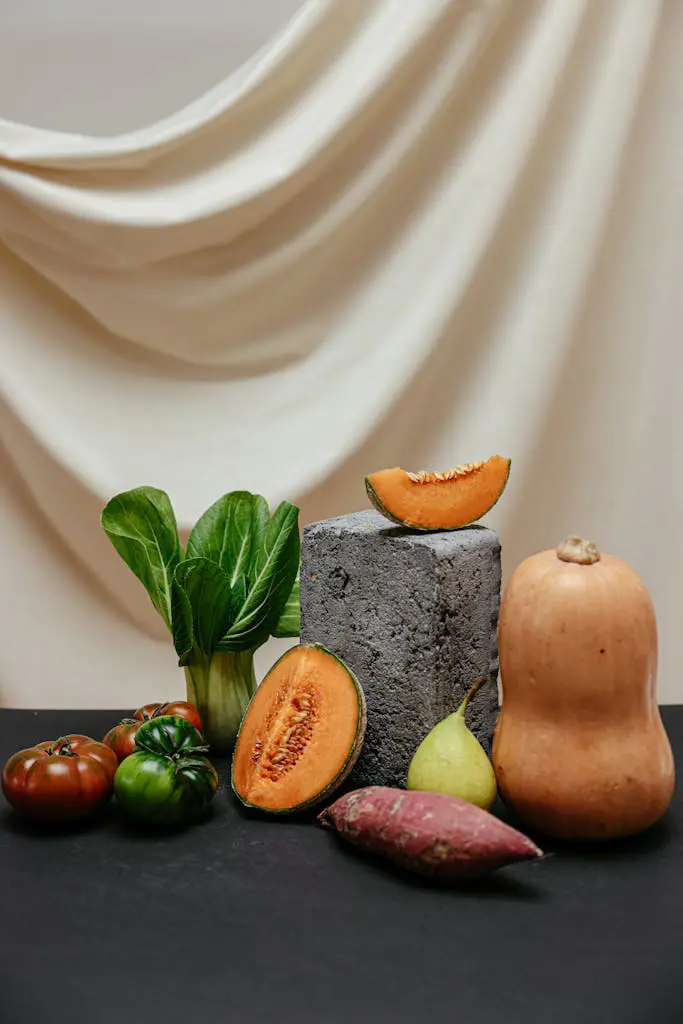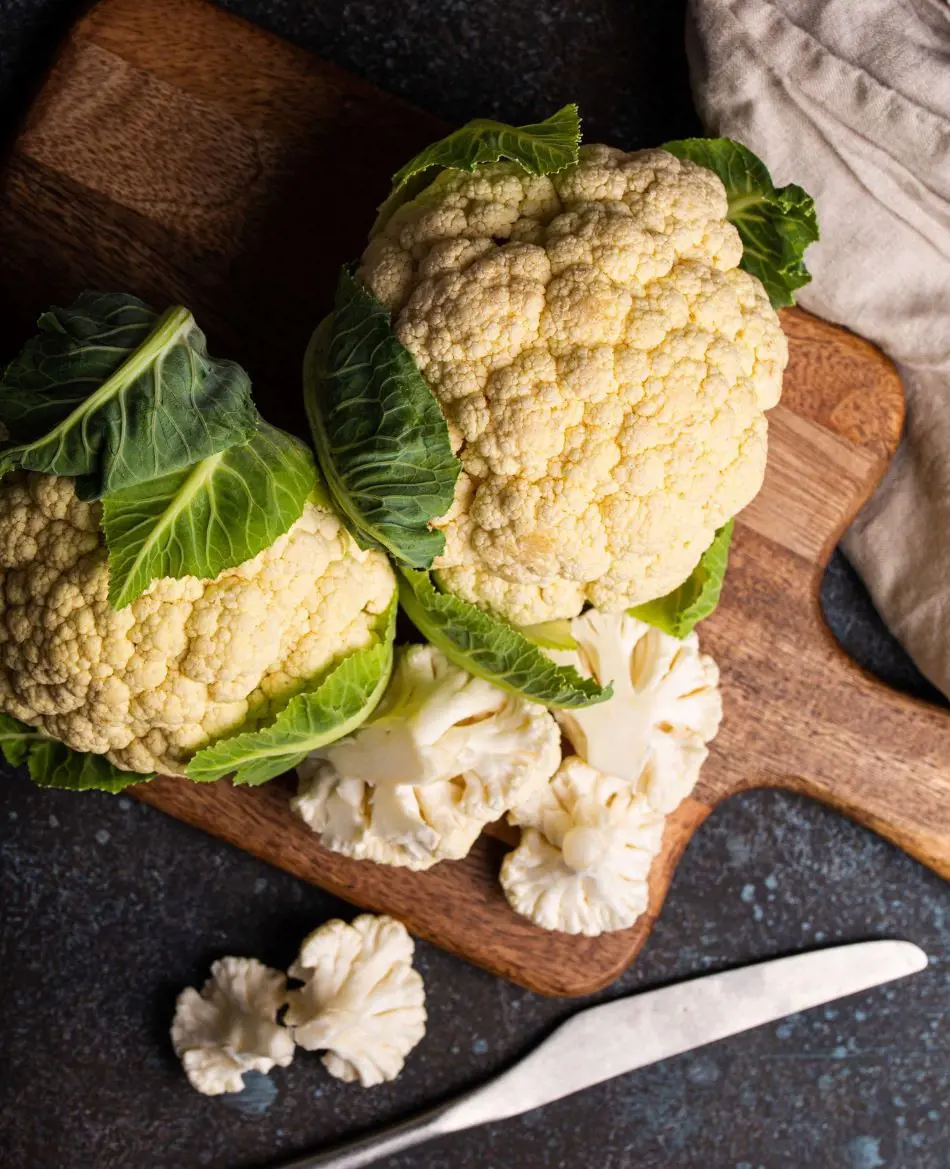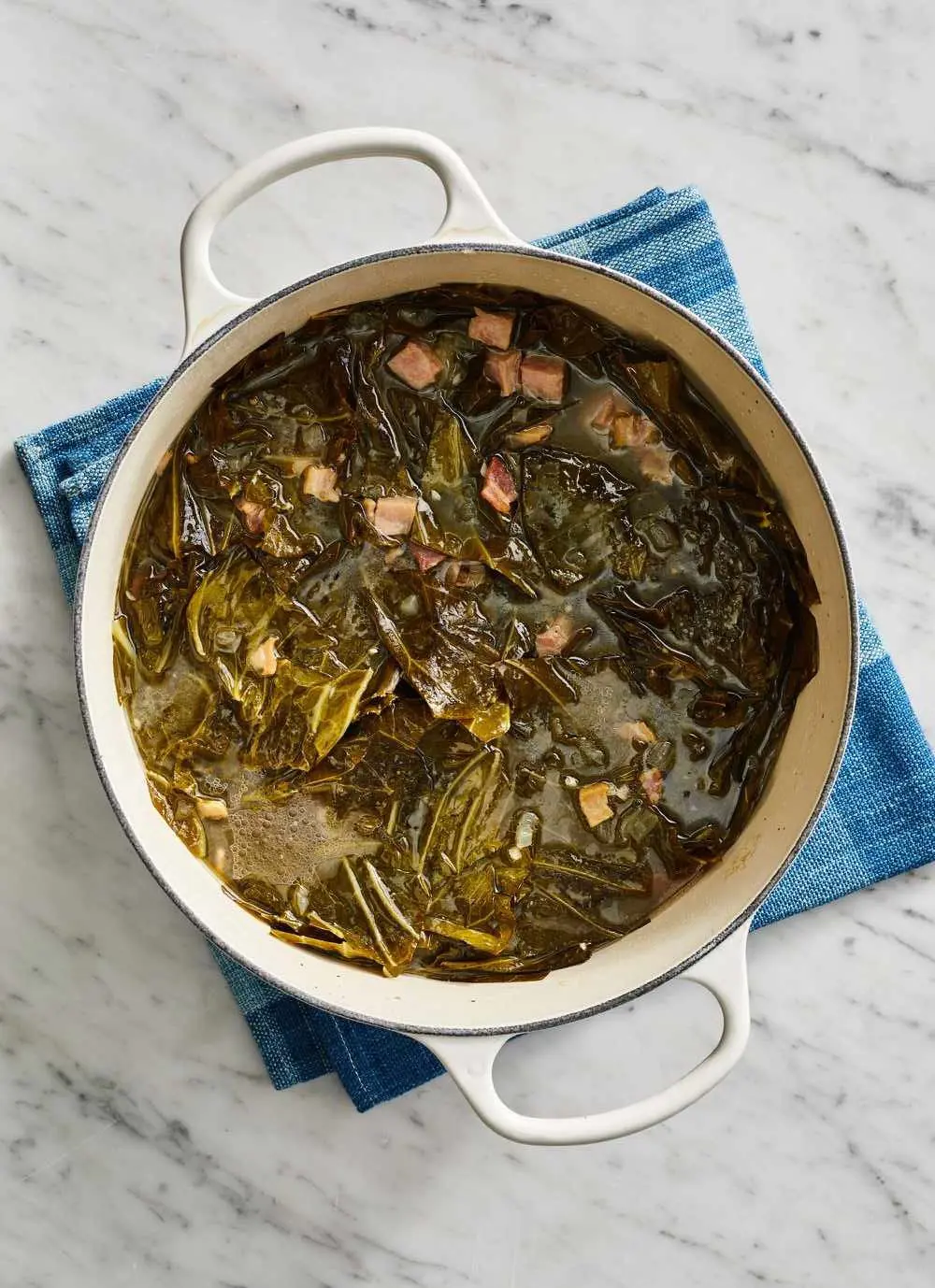20 Collagen Rich Foods
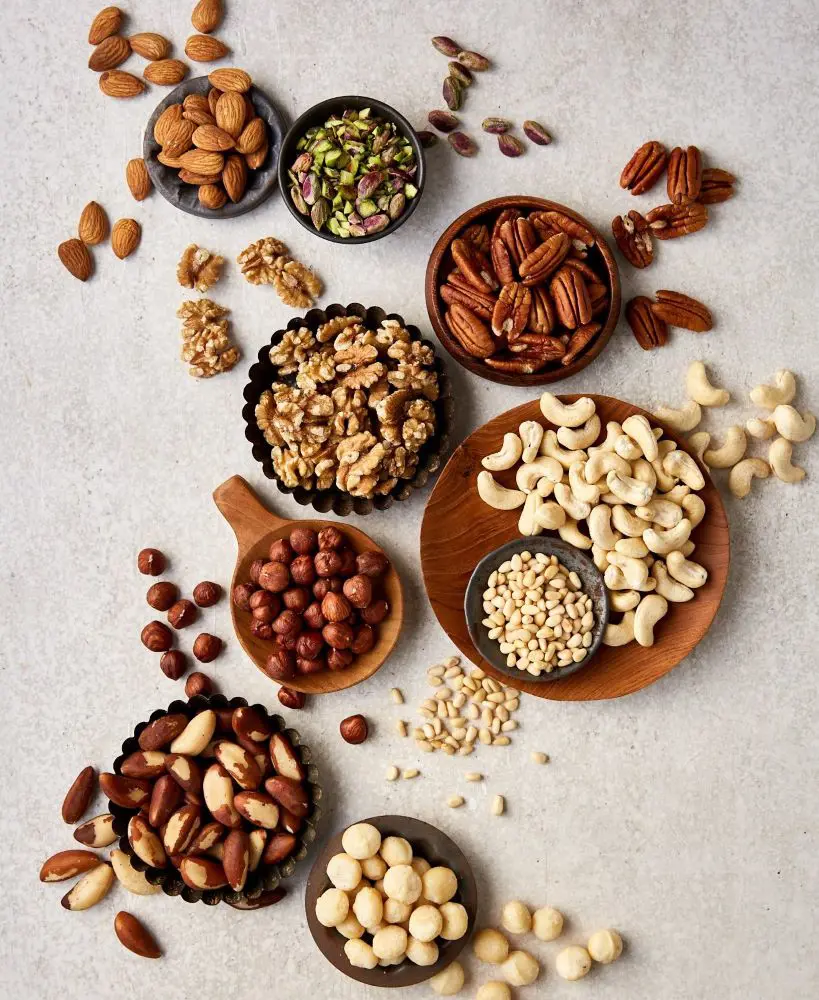
Collagen foods are foods that either naturally contain collagen or promote collagen production in the body. As we age, our bodies produce less collagen, leading to wrinkles, joint pain, and weaker bones. To support collagen production and maintain youthful vitality, our diets play a crucial role.
While supplements can be an effective and convenient way to boost collagen intake, incorporating collagen-rich and collagen-supporting foods into a balanced diet is also beneficial.
What is Collagen Rich Food?
Collagen is a fascinating protein, often described as the body's scaffolding. It's the most abundant protein in our bodies, making up about a third of our total protein content. Collagen acts like a glue that holds everything together, providing structure to our skin, bones, muscles, tendons, and ligaments.
Some high-collagen foods include those rich in vitamin C (like citrus fruits and berries), zinc (such as nuts and seeds), and copper (found in shellfish and organ meats).
Collagen supplements often contain hydrolyzed collagen, which is broken down into smaller molecules that are easier for your body to absorb. These collagen-rich foods can be beneficial for people of all ages and lifestyles.
Following are the 20 best food to eat for collagen:
1. Bone Broth
Bone broth is a nutrient-rich liquid made by simmering animal bones, such as beef, chicken, or fish, and connective tissue in water. It has been a staple in traditional diets for centuries and is now gaining popularity for its numerous health benefits.
It is one of the best collagen sources, particularly type I collagen, which is essential for skin, hair, and nail health. Bone broth contains approximately 10 grams of collagen per cup. Along with collagen, it is also rich in minerals, and other nutrients that support overall health and well-being.
2. Skin-On Chicken

Keeping skin on chicken offers notable benefits for collagen production, particularly with type I collagen. Chicken skin is high in glycine, an amino acid that boosts collagen production. A 100-gram serving of chicken skin provides about 3.3 grams of glycine, which supports healthy, strong skin and muscles over time.
Additionally, chicken skin contains heart-healthy unsaturated fats, making it a nutritious and tasty addition to meals. As a valuable collagen-rich food, chicken skin can be included in a balanced diet for overall health and anti-aging benefits.
3. Pork Rinds
Pork rinds are exceptionally high in collagen, boasting around 10 grams per serving, making them one of the most collagen-rich foods available. This abundance of collagen is attributed to their composition, as pork rinds are crafted from pork skin, which naturally contains collagen.
It's best to consume pork rinds in moderation, integrating them into a well-rounded diet. Enjoy them as a satisfying crunchy snack or utilize them as a topping for salads, soups, or stews. Moreover, pork rinds serve as a versatile and nutritious substitute for breadcrumbs or tortilla chips in various recipes, adding both flavor and texture.
4. Organ Meats
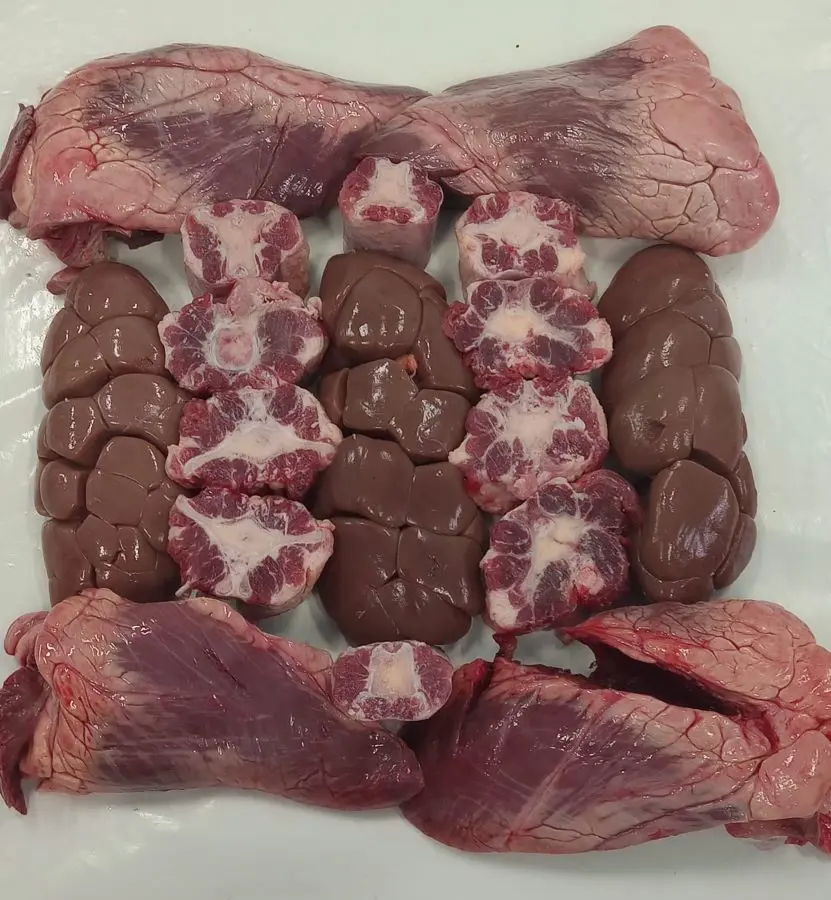
Just like the above food collagen sources, organ meat is also rich in I type of collagen. These meats, including the liver, heart, kidneys, and brain, are rich in vital vitamins and minerals. A 3-ounce portion of organ meat contains about 2 grams of collagen.
Although often overlooked in modern diets, they were dietary staples in ancestral times. Organ meats can be enjoyed in various ways, such as liver pate, a spread made by blending liver with onion, garlic, and herbs. They can also be incorporated into soups, stews, or curries.
5. Dark Green Vegetables
Dark green leafy vegetables, such as spinach, kale, Swiss chard, and collard greens, are abundant sources of collagen, particularly types I and III. These veggies are loaded with vital nutrients like vitamins A and C, crucial for collagen synthesis and upkeep.
Moreover, they boast antioxidants like beta-carotene and quercetin, shielding collagen from harm induced by free radicals. To incorporate these nutritious greens into your diet effectively, it's advisable to enjoy them in various ways: raw, roasted, steamed, blended into smoothies, or added to soups.
6. Pig Trotters
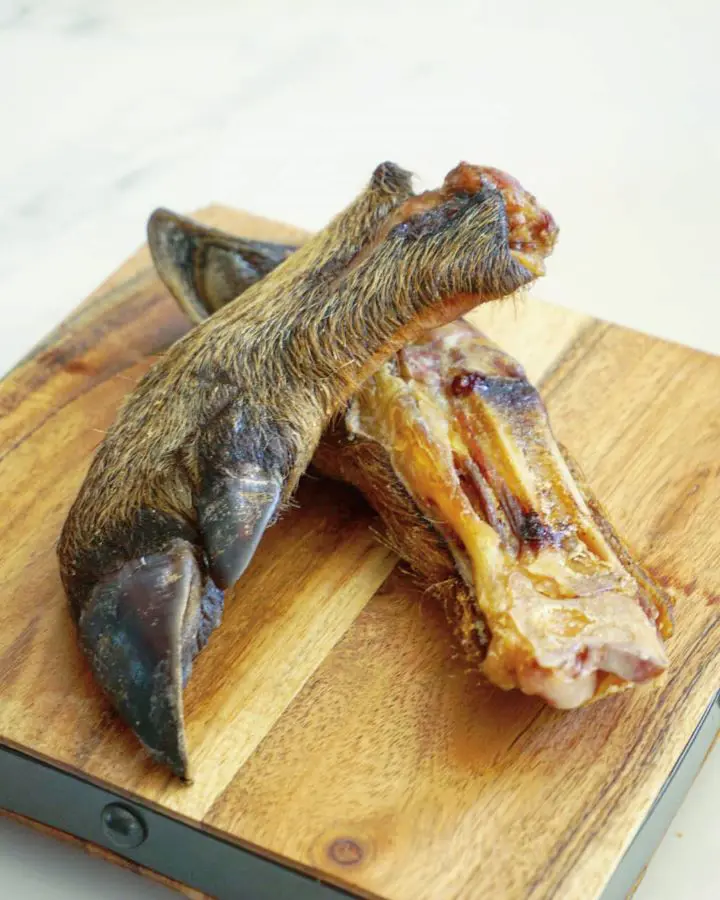
Pig trotters, or pig's feet, are another collagen-rich food often overlooked in Western cuisines. Slow-cooked pig trotters release gelatin, which is rich in collagen and adds flavor and texture to soups and stews.
This method also extracts the collagen, making it simple for the body to digest and absorb. People typically enjoy the collagen from pig trotters by consuming them in soups or broths, offering a tasty and nutritious meal. Moreover, pig trotters can be combined with ingredients like ginger, vinegar, and black fungus, thought to provide extra health advantages.
7. Egg Membrane
The thin layer found between the hard shell and the egg white, known as the egg membrane, is packed with collagen, especially type I collagen, which is crucial for keeping skin, hair, and nails healthy. This collagen-rich membrane not only protects the egg from harmful bacteria but also contains types V and X collagen.
Despite its delicate appearance, the eggshell membrane is surprisingly strong, offering support for skin hydration, flexible joints, and a healthy response to inflammation.
You can easily get your dose of eggshell membrane collagen through supplements, which can be added to smoothies, coffee, or tea for a convenient and consistent intake.
8. Bone-in Canned Fish
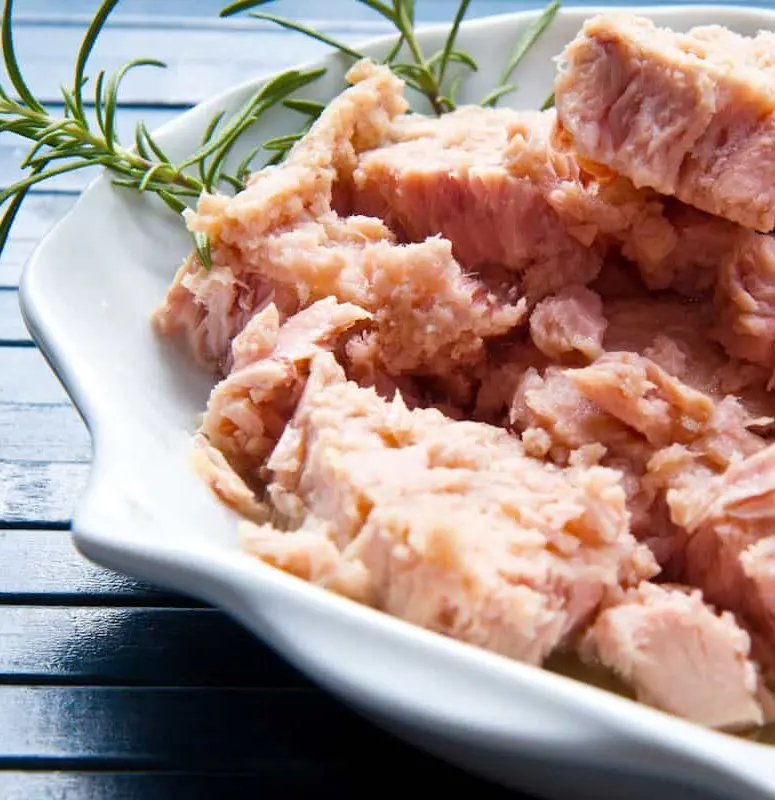
Bone-in canned fish is another collagen-enriched food. Collagen in fish is primarily found in the bones, skin, and scales. Consuming bone-in canned fish provides a significant amount of collagen since the entire fish is eaten.
However, the exact collagen content can vary depending on the type of fish and how it's prepared. Sardines and anchovies are examples of bone-in canned fish that can be seamlessly incorporated into various dishes. They can be added to salads, pasta dishes, or enjoyed on crackers with mustard.
9. Collagen-Infused Drinks
Collagen-infused beverages are drinks containing collagen, a protein present in connective tissues like skin, tendons, and bones. These beverages aim to supplement the body with extra collagen to support skin, hair, nails, and joint health. They come in different forms, such as powders, capsules, and liquid drinks.
One example is No Ugly Skin Water, a product from a Kiwi-owned brand, that offers collagen-infused water named "Skin." Each 250-ml serving of "Skin" contains 10,000 mg of French marine fish collagen protein, 50 mg of flavonoids from Enzogenol, and 40 mg of Vitamin C.
10. Citrus Fruits
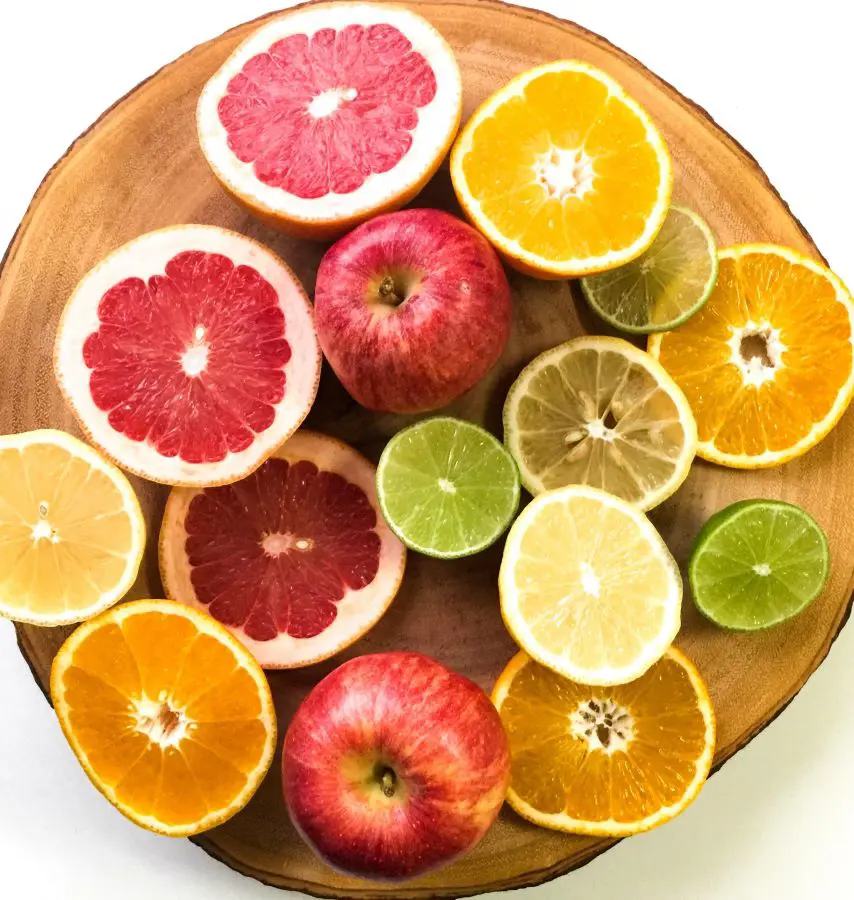
Citrus fruits like oranges, grapefruits, lemons, and limes are popular examples that aid in collagen production. These fruits are rich in vitamin C, a key component for synthesizing collagen, which in turn can enhance skin elasticity and moisture levels.
For instance, a 100-gram serving of oranges provides around 36 milligrams of vitamin C, while the same serving size of grapefruits offers about 34 milligrams. You can enjoy these fruits anytime during the day, such as between meals or after physical activity.
11. Nuts and Seeds
Nuts and seeds, like almonds, walnuts, flaxseeds, chia seeds, and pumpkin seeds, are rich in collagen-supporting nutrients. These include essential fatty acids, zinc, and protein, all crucial for skin health and collagen synthesis.
Almonds are loaded with protein, healthy fats, copper, zinc, and vitamins B and E, promoting collagen production. Walnuts offer omega-3 fats, vitamin E, B vitamins, and zinc, supporting skin health and collagen synthesis.
Flaxseeds provide omega-3 fats and antioxidants, aiding collagen synthesis. Chia seeds, low in fat, are a plant-based source of omega-3 fats, helping maintain supple skin. Lastly, pumpkin seeds are packed with zinc, reducing fine lines, and acne, and bolstering the immune system for healthy collagen production.
12. Garlic
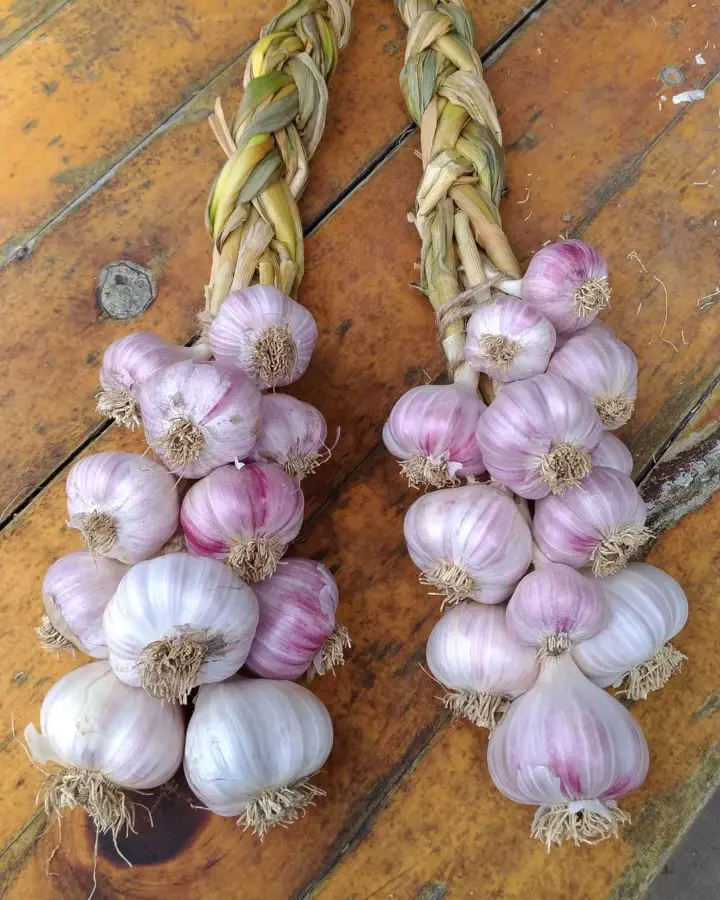
While garlic doesn't directly provide collagen, it's essential for making collagen in our bodies. Garlic contains sulfur compounds like allicin, which help create collagen and stop it from breaking down. It also has taurine and lipid acid, which help fix damaged collagen.
Apart from boosting collagen, garlic offers many health perks. It's loaded with antioxidants and fights inflammation, shielding cartilage from arthritis damage. Plus, garlic keeps the heart healthy by cutting the risk of heart disease and lowering cholesterol.
13. Beans
Beans are a great source of protein, which helps make collagen. They are packed with amino acids like proline and glycine, which are crucial for collagen synthesis.
To preserve the collagen and nutrients in beans, it's best to cook them at lower temperatures for longer periods, like using a slow cooker or simmering on the stovetop. Cooking beans this way helps maintain their collagen content. However, boiling or pressure cooking at high temperatures may cause a greater loss of collagen in beans.
14. Berries
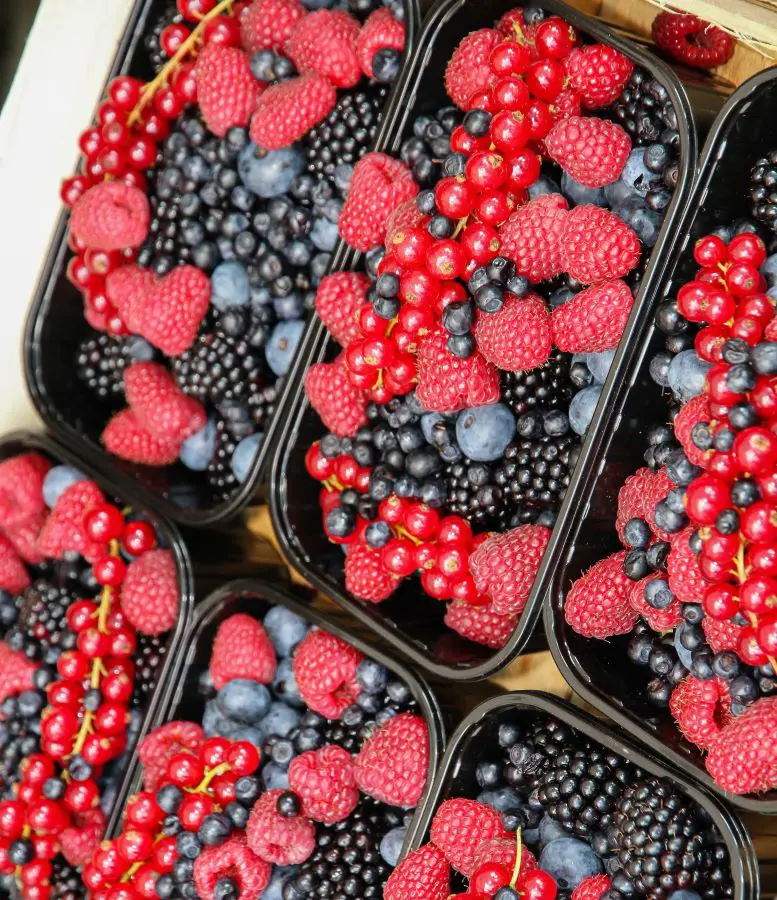
Berries like blueberries, raspberries, strawberries, and blackberries are fantastic sources of collagen because they're packed with vitamin C, which is super important for making collagen in our bodies. Vitamin C helps our bodies create and use collagen effectively.
Strawberries are especially great because just one cup gives you almost all the vitamin C you need in a day. Plus, berries have something called ellagic acid, which helps shield our skin from harm caused by the sun's rays. So, eating berries can help keep our skin safe from sun damage and keep our collagen strong and healthy.
15. Tomatoes
Tomatoes contain some collagen-boosting nutrients, like vitamin C, which is essential for collagen synthesis. Tomatoes are rich in antioxidants like lycopene, beta-carotene, and lutein, which help protect the skin from damage caused by free radicals and support overall health.
They also contain vitamins A and C, which are important for immune function and collagen production. Additionally, tomatoes have been linked to various health benefits, including reducing the risk of cancer, heart disease, and diabetes, as well as supporting eye and skin health.
16. Avocados

Avocados are packed with collagen-boosting nutrients like vitamin C, vitamin E, and healthy fats. Avocados are full of vitamin C, which helps our skin stay youthful and strong by promoting collagen production.
Plus, the healthy fats in avocados lock in moisture, keeping our skin looking plump and hydrated. You can enjoy avocados in salads, smoothies, or guacamole, making them an easy and versatile way to add collagen-supporting goodness to your diet.
17. Carrots
Carrots, often known for their vibrant orange color and crunchy texture, are surprisingly beneficial for collagen production. One of the key elements in carrots that contributes to collagen synthesis is vitamin A, particularly in the form of beta-carotene. When consumed, beta-carotene is converted into vitamin A in the body, which is essential for collagen production.
Apart from their collagen-boosting properties, carrots are rich in antioxidants like vitamin C and beta-carotene, which help protect the skin from sun damage and oxidative stress, thus promoting a youthful complexion.
18. Bell Peppers
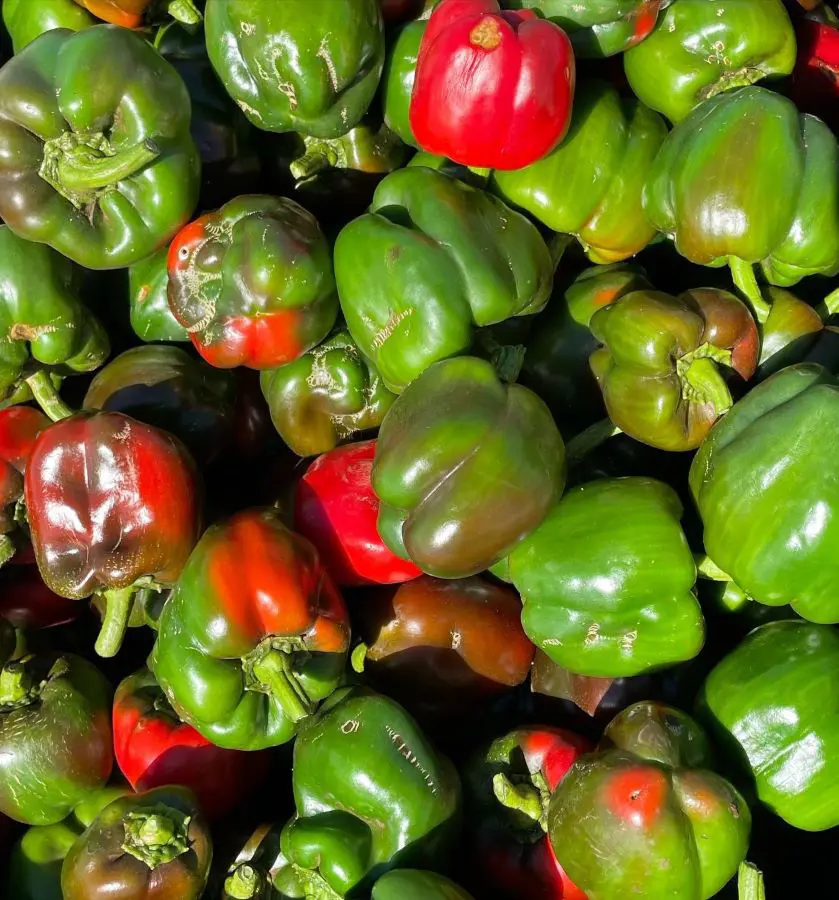
Incorporating bell peppers into your diet is a delicious and easy way to boost collagen absorption. You can add sliced bell peppers to salads for a crunchy texture and vibrant flavor, or include them in stir-fries and vegetable sautés for added color and nutrients.
Another option is to stuff bell peppers with lean protein and whole grains for a nutritious and satisfying meal. Additionally, you can enjoy bell peppers raw as a crunchy snack with hummus or guacamole.
19. Soy
Soy is a rich source of protein and isoflavones, which help promote collagen production. It is also high in other essential nutrients, like calcium and iron. Tofu, tempeh, and edamame, among other soy products, offer versatility and can be seamlessly integrated into various meals.
Tofu boasts approximately 8 grams of protein per 100-gram serving, featuring amino acids essential for collagen synthesis. Tempeh, on the other hand, provides about 19 grams of protein per 100 grams, while edamame offers around 11 grams.
20. Cashews
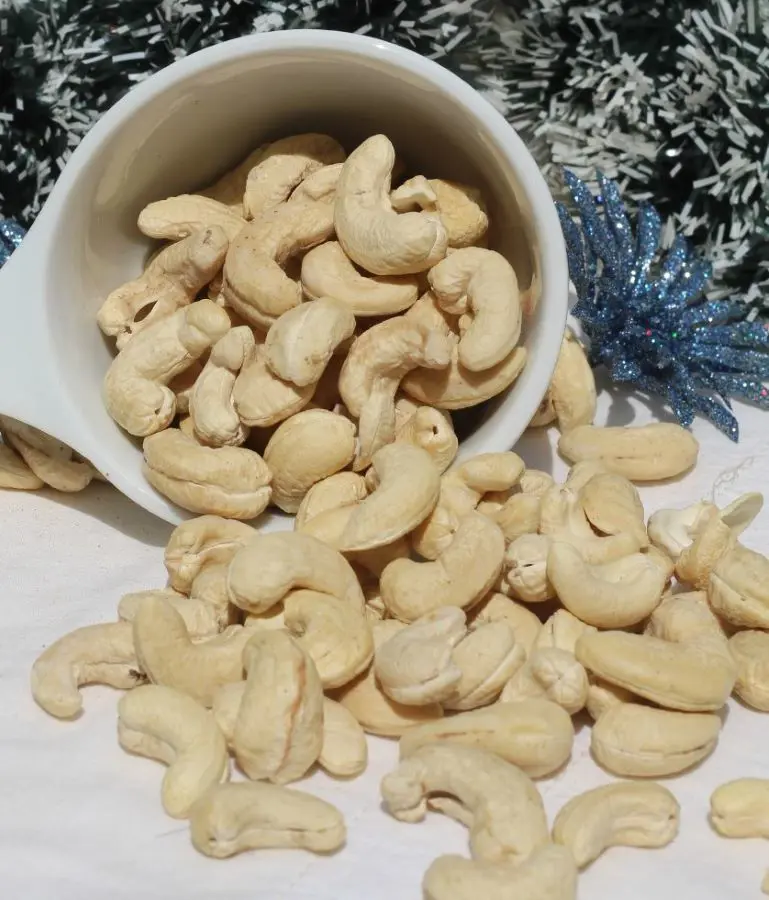
Cashews provide a wealth of zinc, a vital component for collagen synthesis. Alongside, they boast an abundance of other crucial nutrients, such as magnesium and copper.
With approximately 0.5 grams of collagen per serving, cashews offer an avenue to enhance general well-being, combat inflammation, and foster the health of skin and hair.
Possible Side Effects of Collagen Rich Food
There are a few potential side effects to be aware of when consuming foods rich in collagen:
- High-saturated fat: Many collagen-rich foods, such as animal skin and red meat, are high in saturated fat. Too much can lead to high cholesterol and heart disease.
- Contaminants: Foods like bone broth may contain toxins from animal bones and tissues.
- Allergies: Some people may be allergic to animal proteins found in collagen-rich foods.
- Digestive issues: Overconsumption of collagen-rich foods might cause bloating or diarrhea.
To minimize these risks, it's best to eat collagen-rich foods in moderation and choose leaner options.
Recent posts
Nutrition
Nutrition
Licorice Root: Benefits And Uses
You can spell it liquorice or licorice; this herb or root has been in use for centuries in most medicinal applications, as a natural sweetener and to enhance flavors. Regarding its origins, it comes from the root of the "Glycyrrhiza galbre" plant and...
Nutrition
Is Salmon Good For You? Nutritional Facts and Benefits
Salmon fish is a staple diet throughout the world, popular as a super food for its nutrients. Whether savored in sushi, poached, grilled, roasted, or pan-fried, salmon offers minerals and vitamins that contribute to healthy bodily functions. In addit...
Nutrition
25 Smoked Salmon Recipes That You Will Enjoy
Salmon is a silver-colored fish that is loaded with many nutrients, vitamins, and omega-3 fatty acids. Smoked Salmon is better for improving your health and reducing the risk of cancer, heart-related diseases, fights inflammation, reduces anxiety and...
Nutrition
Are Sausages Healthy? Nutrition And Health Benefits
Sausages are tasty in an addictive way, making them one of the most popular foods worldwide. You may have enjoyed this convenient food often, whether on a bun with mustard or grilled on a barbecue, the simple preparation methods are what makes its co...
Nutrition
20 Vegetables That Are Rich In Iron
Iron is essential for our bodies to function well. When we don't get enough iron, we often feel weak and tired. It's important to address iron deficiency early by eating the right foods. Fortunately, many vegetables are rich in iron and can help prev...
Nutrition
15 Cauliflower Nutrition Facts And Health Benefits
Cauliflower, a cruciferous vegetable, resembles a white variation of its relative, broccoli. Like broccoli, it has closely bunched florets attached to a thick core, often surrounded by a few leaves. While white is the most common color, cauliflower i...

